Social geographer Harry Pettit: ‘The Executive Board has failed miserably in dealing with the protests’
-
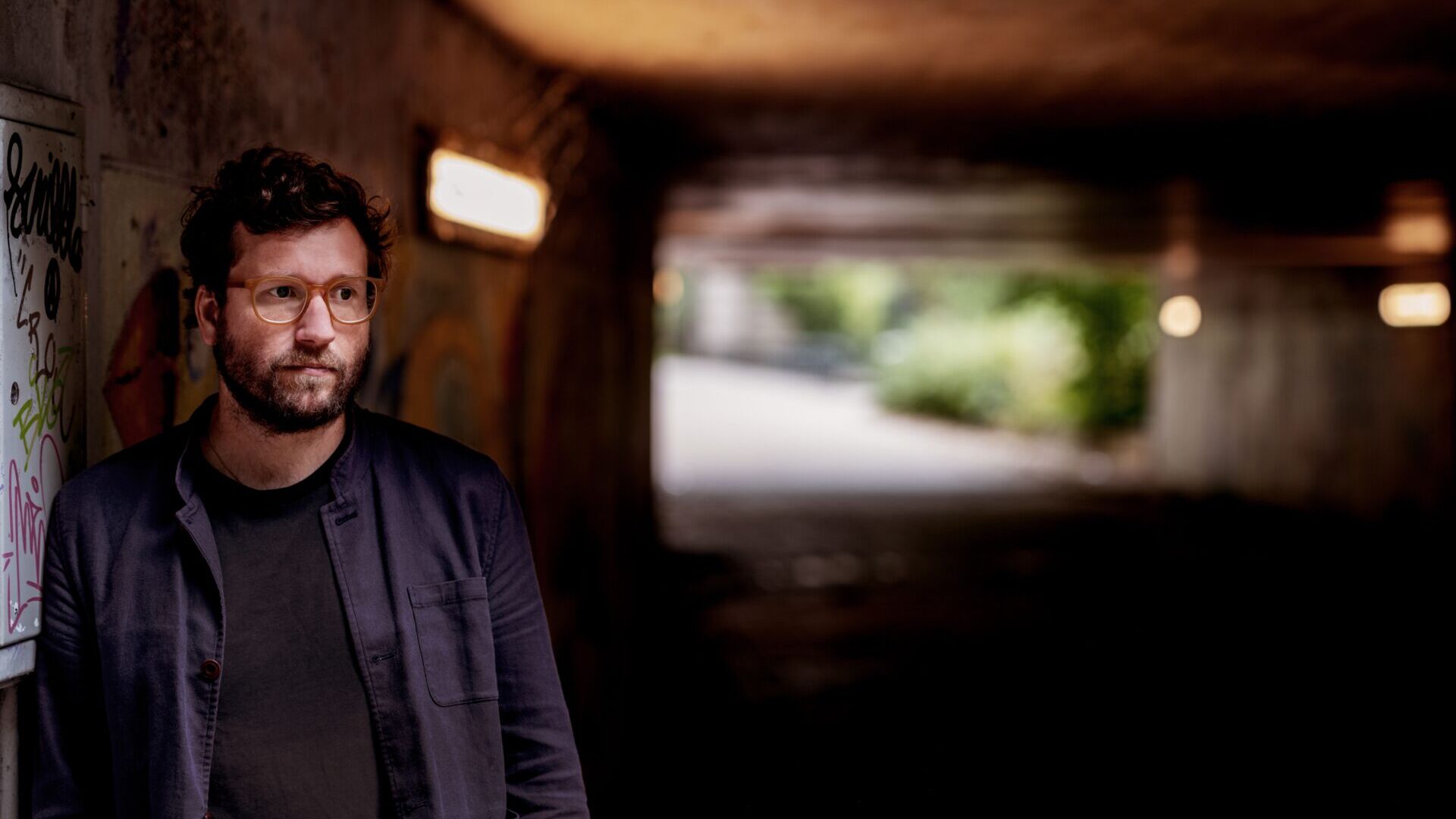 Harry Pettit. Foto: Duncan de Fey
Harry Pettit. Foto: Duncan de Fey
SUMMER INTERVIEW - He is arguably the most well-known – and to some, notorious – pro-Palestine activist of Radboud University. And maybe even of the whole of the Netherlands. Social geographer Harry Pettit participates in demonstrations, with or without a keffiyeh scarf, supports actions of students in the tent camps and wants the university board to distance itself even more from Israel.
‘We must normalise the idea that Zionism must end. If not now, then when?’ University lecturer Harry Pettit doesn’t mince words, during the last lecture of the academic year for Situating Palestine at the end of May. Situating Palestine is a series of lectures by Nijmegen scientists who stand up for the Palestinian cause. There are lectures on average once a month.
In lecture hall 3 of the Spinoza building, British Pettit (1991) reflects on the consequences of a year and a half of actions. Consequences for activists, like the risk of losing jobs or validation of friends. ‘But we should not be afraid, the injustice that the Palestinians are facing is worse. They need us. If we do nothing, they will continue to be oppressed and slaughtered until Palestine is gone.’ He reads his entire talk from paper – ‘I would be too emotional otherwise’, he explains afterwards.
Over a hundred attendees in the hall, mainly students, of whom ten are wearing red or black keffiyehs, give him a loud applause afterwards. A university spokesperson is in the audience as well. There is only one critical question: a student asks what should happen to Zionist voices on campus (see also box: Zionism). ‘I hope that they will come to realise,’ is Pettit’s reply, ‘that Zionism was aimed from the very beginning at erasing people (Palestinians, ed.) from their land. Zionism cannot be justified in any way.’ The audience applauds in agreement.
Demonstrations
Social geographer Harry Pettit, university lecturer at the Nijmegen School of Management, is one of the loudest pro-Palestinian voices on the Nijmegen campus. He helped set up Situating Palestine shortly after the Hamas attack of 7 October 2023 and the fierce reaction of Israel, continuously speaks out on X about Gaza, and – together with other members of the action group Scholars for Palestine – called for apologies by the Executive Board for the ‘police violence against students’. He attends demonstrations on campus, but also regularly shows up at protests elsewhere.
Passport
Harry George Pettit (1991) grew up in Retford (United Kingdom). He studied human geography at the London School of Economics and Political Science, where he also obtained his PhD in 2017. He then had several short-term research or teaching positions at universities in England. In 2022, he worked as a visiting researcher at the University of Amsterdam; a year later Pettit became a lecturer in social geography at Radboud University.
What drives him? And how does he deal with the criticism of the protests? After his lecture for Situating Palestine, Pettit speaks extensively with Vox about his background, research and activism, at a picnic table next to the Lecture Hall Complex (Collegezalencomplex); it is still before the attacks by Israel and the United States on Iran. Last summer, this field was the site of the camp of pro-Palestine activists; now, only a sawn-off olive tree remains.
Pettit talks openly and has a youthful, friendly appearance: curly hair, by default a smile on his face, light brown-orange panto glasses. Not the stereotypical armored activist.
Where were you on October 7?
‘In Beirut, Lebanon, for research into how the cash economy there leads to exploitation and resistance. A Palestinian scientist I met up with in a café the next day was very optimistic and said “we have finally broken out of our prison”. He was referring to the Israeli control of all the external borders of Gaza. At the same time, I was asked by all kinds of Palestinian and Lebanese friends why Western countries were so supportive of Israel. Why was there no attention for the decades-long history of Palestinian oppression?’
‘I wish people would put themselves in the shoes of the Palestinians for a second’
‘I did not have a good answer. When I was back in the Netherlands after a few weeks, some colleagues and I thought: we have to change the narrative. Situating Palestine emerged from that. Because the media and politicians only talked about how terrible Hamas’s actions were, they essentially gave Israel a blank check for the current genocide.’
But the Hamas attacks were terrible, right?
‘There are certainly terrible aspects to that day, but Israel also put up smokescreens about the facts. Aside from this, I wish people would put themselves in the shoes of the Palestinians for a second. 75 percent of the people in Gaza are refugees, Israel has maintained a blockade for seventeen years and has also carried out regular bombings during that time. Mowing the lawn, the Israelis call that.’
Ultimately, according to you, the state of Israel must be dismantled.
‘Yes, it is the only just solution and it is what the Palestinians want.’
It’s also the place most Israeli grew up.
‘Israelis could renounce their citizenship. Some do; many have a second passport, from another country.’
Those are quite some statements. Do you understand that people find this anti-Semitic?
‘Zionists frame this as a call for genocide on all Israelis or Jews, but that is not true. I never call for violence against people, but only hope that Zionists will change their opinion. And I keep stressing that we have several Jews in our movement. Sometimes that seems to be conveniently ignored.’
‘What we want is an end to the current apartheid system in which Palestinians are locked up in an open-air prison (Gaza, ed.) that is now being bombed. Palestinians must receive recognition for the injustice that was done to them when Israel was founded and when they were taken away from their homes.’
Are you hopeful that the tide will turn with the University’s decision to cut ties with the universities of Jerusalem and Tel Aviv?
‘I am not very impressed by that decision. How many consequences does this have in practice? Exchanges were already no longer taking place because of the war, and collaborations in European projects (such as within Horizon Europe, ed.) are continuing as usual. We must sever ties with every company and institute that is connected to the Zionist project. These are not only universities, but also companies such as HP, which supplies equipment to the army (and computers and printers to Radboud University, ed.).’
At Israeli universities in particular, many academics are critical of the Netanyahu government. Are you not letting them down?
‘The point is that these universities as institutes are complicit in apartheid and genocide through their ties with the army. A complete boycott puts extra pressure on that, just like in South Africa in the past. At that time, South-African academics also asked for this.’
Can one be a scientist and an activist at the same time?
‘The idea that lecturers should be neutral is absurd. The university always says that we as scientists should make an impact on the world, right? Showing that Zionism is a racist and genocidal project, and standing up against that is legitimate in that view, right?’
What is Zionism?
There is much miscommunication about the definition of Zionism. In general, it is considered the pursuit of a Jewish state in the location of the current Palestinian territories and Israel. Pettit sees Zionism also distinctly as a settler colonial project. ‘It was described by early Zionists themselves as such, with the intention to remove the indigenous population.’
Where does that strong sense of justice come from? It seems to be a common theme in your life: your research and dissertation also touch on it (also see box, ed.).
‘The inequality of the British school system has made me very aware of my privileges, as has my research in Egypt. After my parents divorced, I lived, together with my two older brothers and sister, with my mother in Retford, a small working-class town near Nottingham and Sheffield. She sent us to a public school, but the quality of that education was rather poor. Thanks to an inheritance, my younger sister and I were able to go to a private school in Nottingham. My brothers were not, because they were almost finished with school.’
‘The differences in opportunities that this created have a lifelong effect. One of my brothers did not finish school in the end and had a hard time finding work for a long time. He now works as a distribution worker in a factory. He and my other brother still live in Retford. My sister and I both moved to London, did a PhD, and went abroad. She now has a well-paid job in Zurich.’
How did you end up in Nijmegen?
‘Life sometimes takes you to unexpected places. I was working in England when my relationship suddenly ended after seven years. I thought, why not broaden my horizons? A friend of mine lived in the Netherlands, so I moved there. I then applied to this job at Radboud University, and I have been here for 2.5 years now.’
‘Because of all those privileges I feel an obligation towards the Palestinians to speak out now’
‘Because of all those privileges, as a British white man with a good education and job, I feel an obligation towards the Palestinians to speak out now. And also towards the courageous students and other young activists here. They are in a much more vulnerable position. As a university lecturer, I have a platform. I hope that I will inspire other people with this.’
Entry ban
Pettit has also become known nationwide through his activism. At the end of October he expressed his dissatisfaction in tv-program Nieuwsuur about the entry ban imposed by ministers Faber (Asylum and Migration) and Van Weel (Justice and Security) against Mohammed Khatib, who had been invited by Pettit and his colleagues to give a lecture on campus. Khatib is the European leader of the controversial pro-Palestinian organisation Samidoun, which is banned in several countries, including Germany, because of its extreme views. For example, the organisation considers 7 October to be a ‘heroic operation’.
In Nieuwsuur, Pettit called the ministers’ decision ‘scandalous’, ‘scary’ and a violation of academic freedom. ‘You also need to listen to people whose opinions might make us feel uncomfortable.’ Various media outlets responded negatively. HP/DeTijd columnist Arthur van Amerongen called him ‘Hamas cheerleader’, the Nieuw Israëlitisch Weekblad ‘anti-Semitic scarecrow’, de Telegraaf ‘the masked activist Radboud lecturer’.
On social media, some people say that you should be fired or expelled from the Netherlands. You are even receiving death threats. How do you deal with this?
‘If they come from anonymous people on social media, I find it easy to ignore them. I recently reported the death threats to the police. Fortunately, I have never been physically attacked, and therefore I am not afraid at the moment – although I am worried that it might happen one day. I would also rather not mention where I live.’
Arrest
In the meantime, the university seems to be struggling with the limits of academic freedom that the outspoken lecturer is seeking. This became apparent last December, for example, when Pettit was arrested together with five others after vandalism in theatre hall C of the Elinor Ostrom building. The lecturer was detained for thirty hours – unjustly, as it soon became clear, because he was on a train at the time of the vandalism.
A subsequent evaluation meeting with two members of the Executive Board about the arrests followed. ‘They emphasised how the security guards (who allegedly identified Pettit as a suspect, ed.) had done nothing wrong.’ Later, Pettit filed a complaint with the ombudsperson about the course of events surrounding the arrests.
You do not feel supported by the Executive Board?
‘No. I feel thrown under the bus because they do not defend me publicly, not even when de Telegraaf portrays me as a dangerous person. In general, we are seeing a massive attack on the freedom of expression at Dutch universities when it comes to Palestine and the genocide.’
University boards must represent the interests of everyone on campus, including Jewish employees. Some feel unsafe, like the porter of buildings.
‘That appeal to a sense of insecurity is no excuse to allow police violence against students, is it? Look at the student who was brutally bitten by a police dog on May 7. The Executive Board has failed miserably in dealing with the protests.’
‘By focusing on the graffiti or that little bit of damage to property, the Executive Board is simply trying to divert attention’
The demonstrators are also far from non-violent: smashed windows in the Berchmanianum, vandalism in TvA1, graffiti. They cause thousands of euros in damage.
‘To be clear, I was not involved in any of that. But I will always support the students who do this; they are trying all they can to draw attention to the terrible crimes in Gaza. The real violence lies in the university’s complicity in those crimes. By focusing on the graffiti or that little bit of damage to property, the Executive Board is simply trying to divert attention away from this. These types of protests are effective precisely because they are disruptive. Otherwise, the university would never have cut its ties with those two universities.’
Protests are possible without destroying other people’s property, right?
‘Graffiti has a long history as part of resistance. And protest movements have good arguments why causing damage is important. It puts institutions under pressure, generates media attention, and it irritates people to such an extent that they can no longer ignore you. Climate activists do the same by, for example, deflating the tires of SUVs. Also, don’t forget that the protests have been going on for a year and a half without the university taking much concrete action.’
Do you fear to be fired at some point?
‘No, the idea that speaking up against Israel and Zionism could cost me my job is crazy. But I have particular boundaries. If I wanted to lose my job, I could have done more. However, I do fear that my outspoken stance will have consequences for my career, for example that it will be more difficult for me to get promoted. But I am not backing down – at the end of the day, this is what I believe in. I am convinced that I am on the right side of history, and that we have already been able to contribute to change.’
The Arab American dream
Pettit’s PhD dissertation, published as The Labour of Hope (Stanford University Press), is an academic analysis of – and indictment of – the poor career prospects for young Egyptians from the lower and middle classes. The capitalist system, he writes, offers them the false hope that they can achieve a successful life: with a prestigious job, a cosmopolitan lifestyle and a lasting relationship. As long as they invest enough time and money, for example in soft skills training. Call it the American dream, but in the Middle East. In practice, this ideal is unattainable for the vast majority. They are repeatedly rejected for jobs, lack the start-up capital to start businesses and are mainly trying to survive – with all the frustrations and despair that entails.
For this research, Pettit followed the daily lives of young Egyptian people up close for eleven months in the course of two years. He lived with them, went out with them in posh neighbourhoods where they gave the impression with selfies that they were already well on their way to success. During the week, Pettit saw how they were confronted with the reality of, for example, a job as a supermarket employee.
The experience made a deep impression on Pettit. ‘Emotionally intense’, he calls the fieldwork. ‘You are also aware of the ethical obligation that lies on your shoulders to do such ethnographic research carefully. I was, in fact, exploiting them.’ He was also left with a sense of guilt, because he was living the life that the young people aspired to, without being able to do anything for them directly.
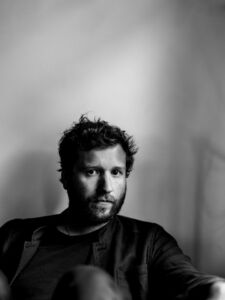
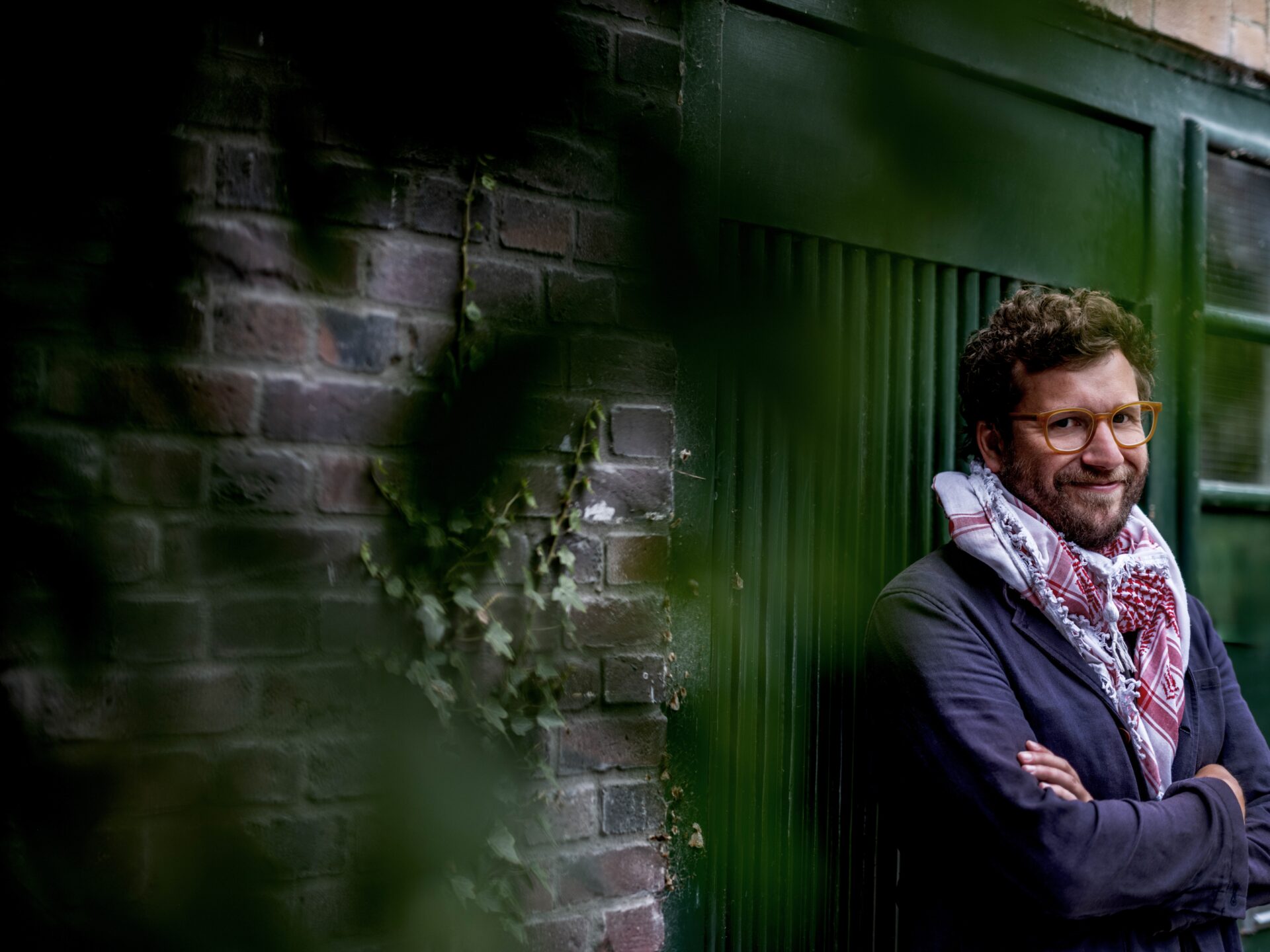
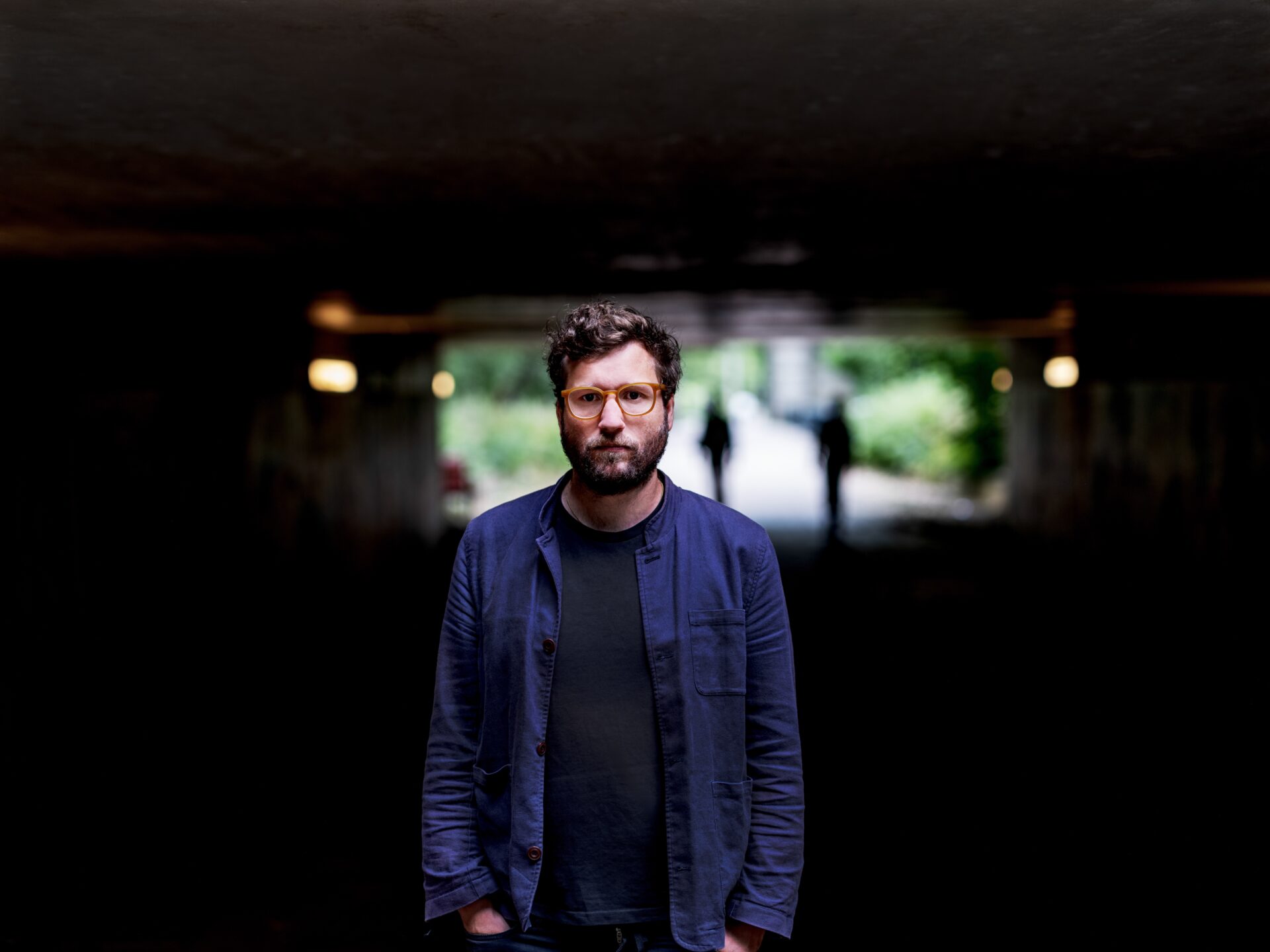
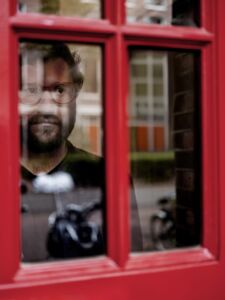




Luca Nourdin schreef op 9 juli 2025 om 20:30
Het linkse activisme van mensen als Petitt speelt islamitische terreurgroepen in de kaart met hun oorlogskreet alla-akbar tegen de open en vrije westerse democratie.
Onverantwoord. En ondertussen gaan de moordpartijen door moslimterreurgroepen die te vergelijken zijn met Hamas door in Syrië en Nigeria met het uitmoorden van christenen. De katholieke universiteit van Nijmegen is doodstil over dit laatste onrecht.
Jennifer schreef op 10 juli 2025 om 12:14
Do you even know what Allahu Akbar means? Your racism and islamaphobia is making you stupid. If Allahu Akbar is a war cry then so is “Jesus is King”.
Ju schreef op 10 juli 2025 om 14:17
There are a lot of false comparisons I won’t address, but just one thing: cherry-picking attacks against Christians is quite interesting when we know that the IDF and civilian settlers have been destroying and harassing Christians in Gaza, Israel and the West Bank, the last call for help and awareness being just a few days ago: https://www.indcatholicnews.com/news/52772
Steven Relish schreef op 12 juli 2025 om 13:00
Harry Petit is one of the best professors we have. While there are many other Radboud employees who share his opinion, it is also sadly the case that many professors will just stay silent on the crime of our lifetime – the genocide in Gaza. Instead, here he is, risking his career for people he doesn’t even know. And standing up to a mob of fools like Govert Janssen in the comments.
This man is a role model for ethical academia, and here we have some people all uppity about the damage to property. Well, clearly they value property more than they do the lives of non-white people in the hundreds of thousands.
Students are fighting against an entire system of complicity and indifference to the ways in which our university is fuelling the genocide. So yes, some walls are going to get painted, some glass might even get broken.
If you are so mad about that, why aren’t you mad about the genocide?